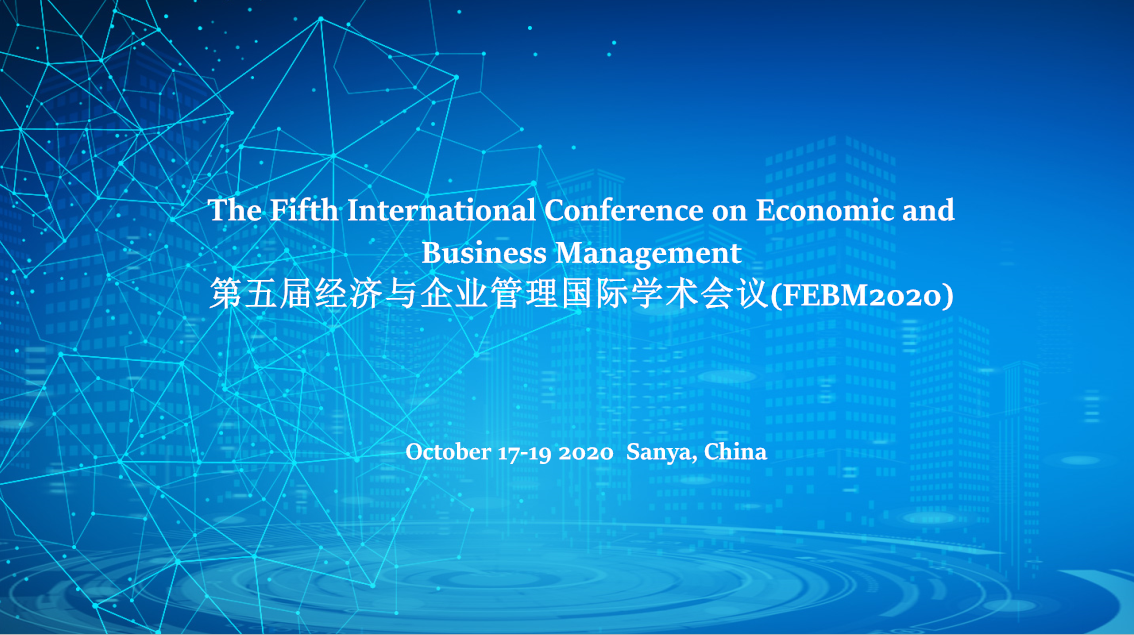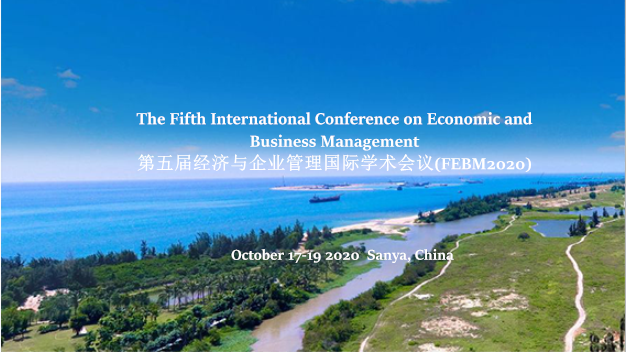Keynote Speakers
 |
Qiang Wu Associate Professor Director, M.S. in Quantitative Finance and Risk Analytics Program, Lally School of Management, Rensselaer Polytechnic Institute, USA Title: The role of social capital in corporate decision-making Abstract: Social capital has been a subject of extensive research in sociology, political, and economics. A central theme that emerges from these studies is that social capital—vis-`a-vis shared common beliefs (i.e., social norms) and dense associational networks—facilitates norm-consistent behaviors and constrains norm-deviant behaviors. There is considerable evidence showing that a community’s social capital affects the social and economic behaviors of its residents. In this speech, I will talk about how my coauthors and I introduce the social capital concept into the corporate setting and examine how social capital affects various corporate decision-making. More specially, I will overview my recent publications on how social capital affects corporate tax avoidance (Journal of Accounting Research), CEO compensation (Journal of Financial Economics), cost of capital (Journal of Financial and Quantitative Analysis ), innovation (Journal of Corporate Finance), and corporate social responsibility (Journal of Business Ethics). Hope my speech can encourage more research on how informal institutions affect corporate decision-making. |
 |
Xiaoxia Huang Professor Donlinks School of Economics and Management, University of Science and Technology Beijing, China Title: Why uncertain portfolio selection and how does background risk affect portfolio choice? Abstract:The lecture introduces a new type of portfolio selection which is called uncertain portfolio selection and discusses why we need to study the kind of problem. Then by introducing an uncertain mean-variance model with background risk, the lecture discusses how background risk affects individual investment decisions. The characteristic of the mean-variance efficient frontier of the stock portfolio in the presence of background risk will be offered, and the uncertain mean-variance model with consideration and without consideration of background risk will be compared. Based on the comparison, how background risk affects individual portfolio choice will be presented. |
 |
Vladimir Plotnikov Professor Department of General Economic Theory and History of Economic Thought, St. Petersburg State University of Economics, St. Petersburg, Russia Title: Coronacrisis and state support of the economy (Russian experience) Abstract:The relevance of the problem. In 2020, the global economy is heavily influenced by the COVID-19 coronavirus pandemic. An outbreak of this infectious disease was discovered in the People's Republic of China at the end of 2019. Very quickly, the disease spread to other countries. As a result, the World Health Organization in March 2020 assigned this infection pandemic status (that is, a global epidemic). The coronavirus pandemic negatively affected the economy. It caused an economic crisis. We call it "coronacrisis." The governments of different countries are taking active measures to overcome this crisis. These measures and their effectiveness should be the subject of objective analysis. Purpose of the study. To analyze the development of the coronacrisis and measures of state support of the economy, which are implemented to overcome it. Object of the study. National economy of the Russian Federation. The choice of a specific country is determined by the variety of state policies implemented in different countries. Their comparative analysis has yet to be done. This can be done with the accumulation of sufficient empirical material. ...View More |
 |
Haoxun Chen Professor Logistics and Optimization of Industrial Systems, University of Technology of Troyes, France Title: Collaborative Logistics in the E-Commerce Era Abstract: In today’s e-commerce era, daily flows of goods between big cities or in a big city are huge. These flows lead to traffic congestion, air pollution, and enormous consumption of energy. Optimizing intercity and intracity logistics flows is primordial to reduce all these negative impacts and energy consumption. Collaborative logistics has recently emerged as an effective approach for this optimization. Beyond the optimization of vehicle routes by each shipper or carrier, multiple shippers or carriers may collaborate with each other by consolidating or exchanging their transportation requests in order to reduce empty repositions of their vehicles and increase their vehicle fill rates. In this talk, after introducing different types of collaboration in logistics, important issues for collaborative logistics will be addressed, including collaborative planning of transportation operations among shippers or carriers and fair allocation of profit or cost among these actors in a collaborative coalition. This talk will be concluded by a discussion on research opportunities on collaborative logistics. |
 |
Li-Wei Lin Assistant Professor Department of Electronic Commerce, Zhejiang University of Finance & Economics Dongfang College,China Title:Will 5g speeds cause impulsive purchases? Abstract:In 2020, China began to implement 5G systems in metropolises. This study mainly investigates whether the speed of 5G will affect consumers to use the platform and purchase goods more quickly in the electronic shopping mall. The stability, ease of use and quick response of 5G systems will cause consumers to make impulse purchases. Our research found that the 5G network speed of e-commerce malls in the future will make consumers more impulsive buying behavior. The results of the study show that system stability, ease of use, and quick response links will quickly allow consumers to make impulse purchase decisions. |

